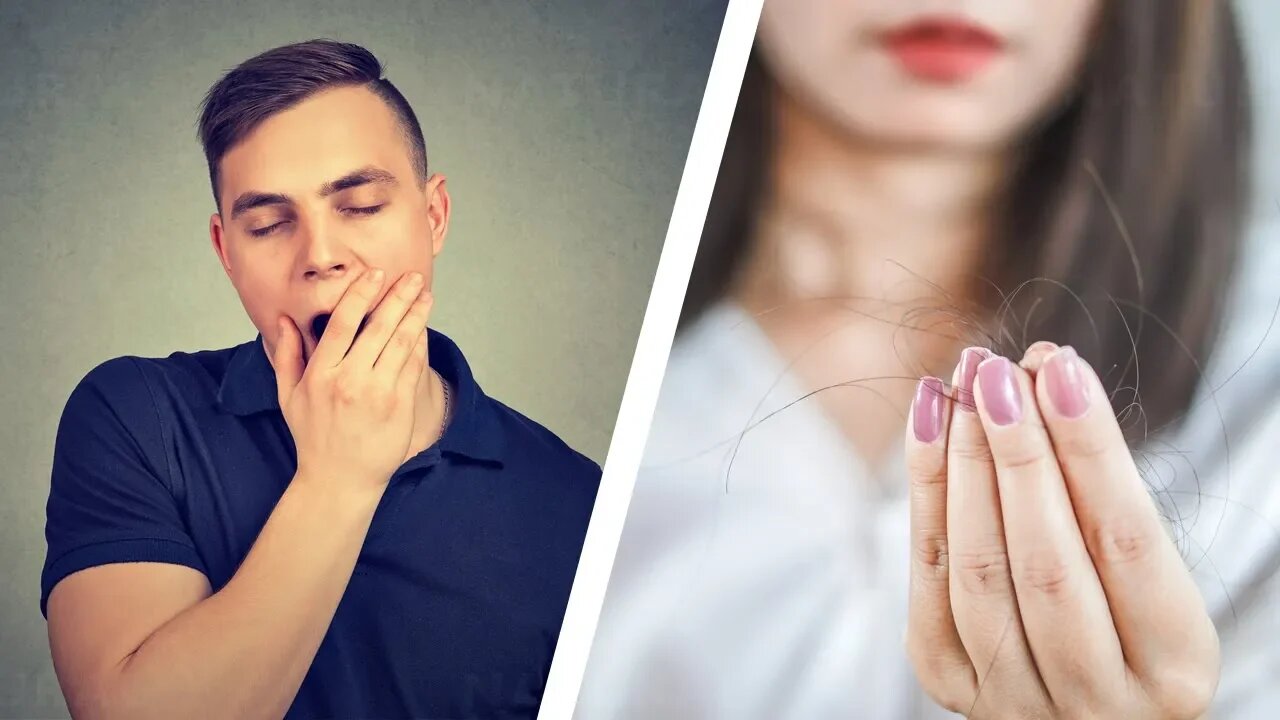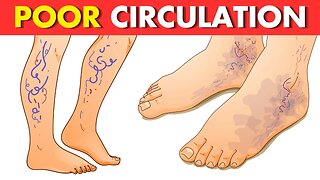Premium Only Content

7 Surprising Signs You're Not Getting Enough Protein
People are thinking more and more about their eating habits.
Having a diet that is adequate and full of nutrients can contribute a lot to how you feel in your daily life. Did you know that?
Proteins, just like fat and carbs, are part of the macronutrients that we need to ingest daily in order to keep our health balanced.
They are found in all cells and tissues, and are enzymes, hormones, and protective agents, responsible for regulating chemical reactions of the body, growth, and tissue repair.
Did you know that a low protein intake can have negative effects on the body? Hair loss, cracked skin, and even weight loss (low muscle mass) can all be causes of a low ingestion of protein.
Because of that, many people turn to the controlled consumption of protein to strengthen muscles and avoid the consequences of a diet that is poor in this nutrient.
Learn now four signals that may suggest you aren't getting enough protein to help on muscle repair and growth!
According to dietitians, sedentary people must ingest 0.8g to 1g of protein per pound of body weight.
For instance, a woman weighting 110 lbs. must consume 40 to 50g of protein per day.
However, if you practice any kind of physical activities, you can consume from 1.3g to 1.8g of protein per day.
But remember: the low ingestion of protein makes your body show some symptoms, but an excess of protein can lead to kidney issues and cardiovascular diseases (hypercholesterolemia and atherosclerosis).
It is important to have a varied and nutrient-rich diet.
Before any changes in your diet, talk to a dietitian.
----------------------------------------
Facebook: https://bit.ly/38BWbw3
Pinterest: https://bit.ly/2Irvwa6
Disclaimer: The materials and the information contained on Natural Cures channel are provided for general and educational purposes only and do not constitute any legal, medical or other professional advice on any subject matter. These statements have not been evaluated by the FDA and are not intended to diagnose, treat or cure any disease. Always seek the advice of your physician or other qualified health provider prior to starting any new diet or treatment and with any questions you may have regarding a medical condition. If you have or suspect that you have a medical problem, promptly contact your health care provider.
-
 4:50
4:50
Natural Cures
1 year ago $1.10 earned5 Warning Signs of Poor Circulation and How to Fix It
2.85K1 -
 1:49:21
1:49:21
Film Threat
6 hours agoBEST AND WORST OF 2024 + SQUID GAME SEASON 2 | Film Threat Livecast
30.9K4 -
 1:06:04
1:06:04
The Big Mig™
19 hours agoGlobal Finance Forum Powered By Genesis Gold Group
26.9K2 -
 34:38
34:38
Tudor Dixon
4 hours agoThe Changing Landscape Between Tech and Politics with Mike Benz | The Tudor Dixon Podcast
19.6K1 -
 2:23:58
2:23:58
Matt Kohrs
15 hours agoRumble's Stock Is EXPLODING!!! || The MK Show
76.4K6 -
 1:57:47
1:57:47
LFA TV
17 hours agoBOMBSHELL FINAL REPORT: BIDEN ADMIN SUPPRESSED WUHAN LAB LEAK | LIVE FROM AMERICA 12.27.24 11am EST
43.5K6 -
 43:07
43:07
Grant Stinchfield
4 hours ago $4.64 earnedWe Built it... China Controls it... Trump Will Take it Back!
21.3K7 -
 35:05
35:05
Rethinking the Dollar
4 hours agoTime to Pay the Piper! Debt Refinance Crisis Coming in 2025
20.4K3 -
 52:34
52:34
PMG
17 hours ago $4.23 earnedHannah Faulkner and Steve Friend | EXPOSE THE FBI CORRUPTION - KASH PATEL
19K10 -
 2:58:58
2:58:58
Wendy Bell Radio
10 hours agoOn Day One
89.8K78